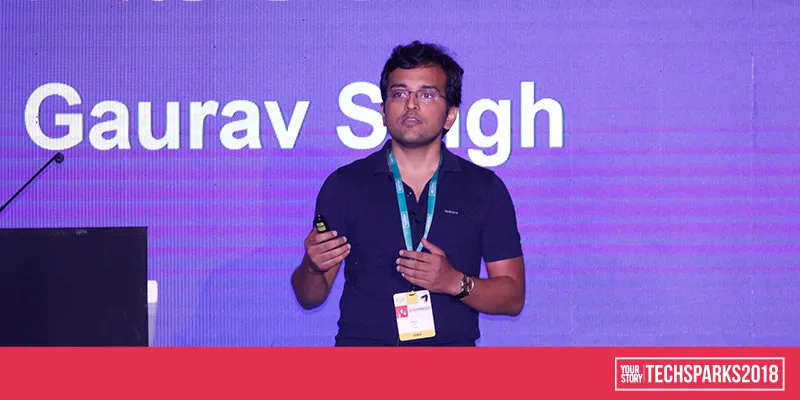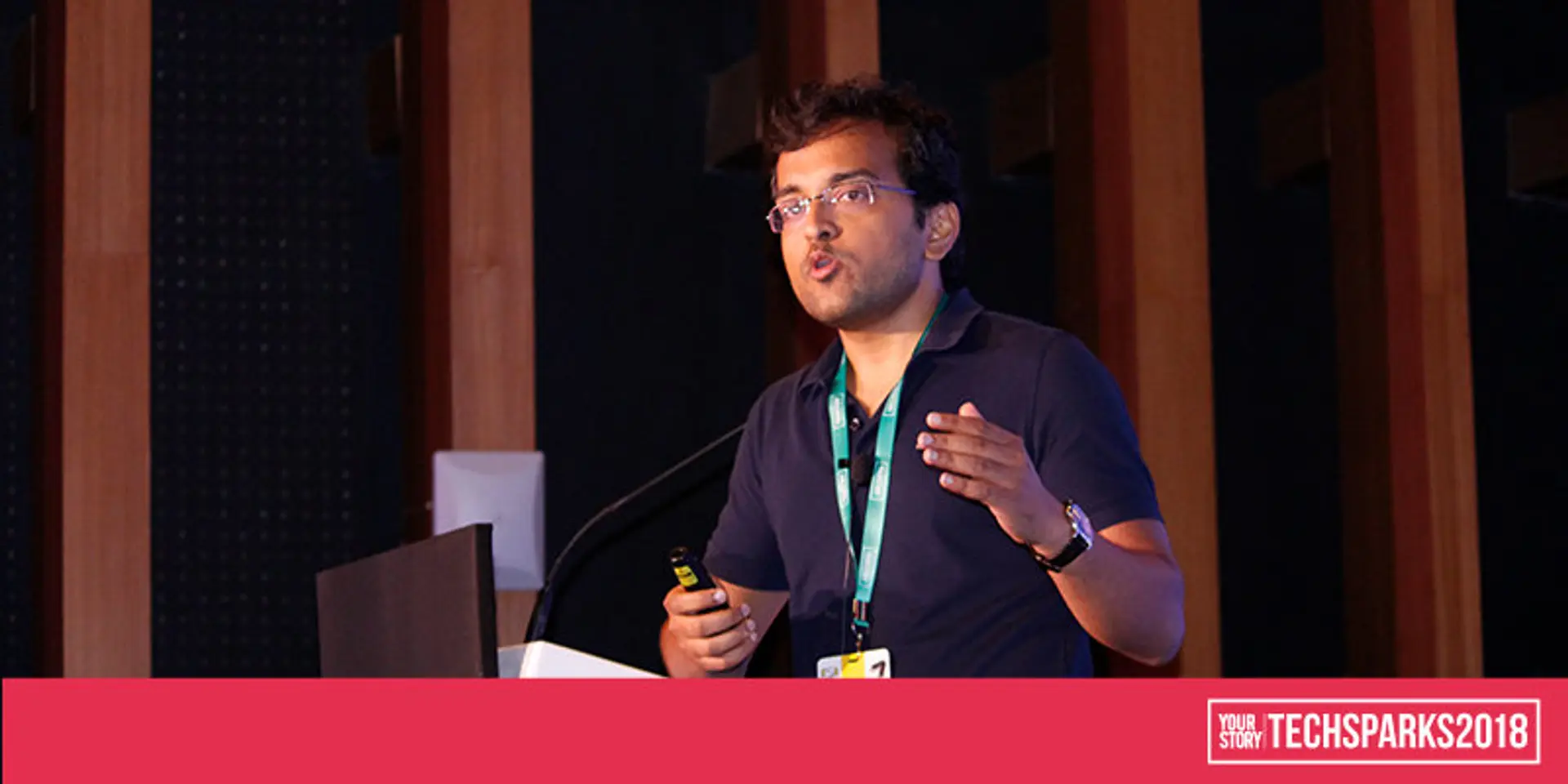'Don't obsess over your competition' - Verloop founder, Gaurav Singh lists classic Saas mistakes to avoid
Founder and CEO of Verloop, Gaurav Singh, spoke at the 9th edition of TechSparks about classic Saas mistakes to avoid as a first-time founder.

Gaurav Singh, founder and CEO of Verloop has been associated with the Bengaluru-based customer support and engagement automation platform, for more than 24 months now. Learning from his own mistakes, Gaurav shares 25 Saas mistakes to avoid as a first-time founder.
The founder claims that Verloop has 5,000 plus customers and the platform engages with 50 million customers each day. Verloop's customers include Rajnikanth's Thalaivaa, Nykaa, Livpure, Apollo Munich Health Insuarance and Abhibus.
Speaking at the 9th edition of TechSparks 2018, Gaurav said that his advice is not for entrepreneurs who think funding will solve all their problems, or companies that have above two million accounting rate of return or companies that sell at least $9 a month.
Some Saas mistakes to avoid, according to Gaurav are:
- Taking too long to define customer persona - Gaurav advised first-time founders to figure out who they want to sell to and deal with - the target audience sh0uld be very clear about it.
- Losing focus - First-time startups should skip building bells and whistles - niche should be one and focused. In the early days, focus is all, it is not easy to please everyone and founders should focus on their product instead.
- Consider all revenues to be equal - some come at a much higher cost than others.
- Perfecting technology too early - in early days of a startup, revenue is more important than technology debt. Founders should pay debts as the company grows.
- Chasing tech fast - companies should go to their customers, understand their problem and then, - build, measure, iterate as fast as they can.
- Skipping non-scalable work - young entrepreneurs to embrace the grind without worrying that it will not scale.
- Doing what worked for Intercom, Nubspot or Salesforce - one must be inspired by the big names. He also mentioned that point advice is rarely useful. What's more important is knowing the customers, not the competitors.
- Obsessing over competitors - Instead of obsessing over the competition, founders should focus more on their customers. Competitors' target audience and customers might not be the same as someone else' and what works for a company's competitor, might not work for them.
- Hiring in a rush - Just because there are vacancies, founders should not hire in a rush. A first-time founder should not fall for pedigree but conduct proper interviews and most importantly, do reference checks. "When in doubt, always say 'no'," said Gaurav.
- Firing slow - A startup's culture is defined by who they hire and fire. If it is not working out with a particular employee, the founder must immediately fire them.
- Chasing irrelevant press - First time founders should not chase big media houses just for the high traffic these startups attract. "Even if an article about your startup is published by a media house, most probably, your customers won't read it," said Gaurav. He suggests that founders should aim to get relevant press, for example, for a travelling startup, a travel magazine would be ideal.
- Obsessing over Hacter News and Product Hunt - While these websites can help get an early buzz for startups, they have almost no revenue impact.
- Chasing venture capital - a young founder must meet customers to improve the startup, instead of chasing venture capital and analysts. "Revenue is the cheapest funding," he said. It is VCs job to find startups.
- Pointless Networking - young entrepreneurs should not indulge in pointless random meetups, swapping notes in all BS and picking brain.
- Selling startups
- Competing on price vector - ask young founders to not sell the lowest priced product in the market.
- Lacking a personality - Startups are out their to sell their business but they should not behave like a 'salesman'. On the other hand, startups sell to people and they should treat them like one.
- Do not get too clever with designs.
- Do nor dominate sales conversations - Let customers speak and then offer solution. Customers should be allowed to speak for 75 percent of the time.
- Feature demonstrations - Instead of providing feature demos every time, founders should instead have conversations with their customers, understand their problems and then work and solve their problems.
- Delay in asking for sales - ask for money the moment your job is over.
- Considering all leads equal - a founder should find his 'no's and 'yes's very fast.
- Hiring sales people too early.
- Slacking after the first meeting - founders should immediately follow up after the first meeting. Keep people excited about your product and keep the conversation going.
- Searching for a playbook - Gaurav ended his talk by saying that there are no rulebooks for entrepreneurs. While the points he lists might help a young founder to start, these are not fixed and varies from company to company.
YourStory's annual extravaganza TechSparks brings together the best and the brightest from the startup ecosystem, corporate world, policy makers, and of course, the investor community. Over the years, it has grown to become India's most loved tech and startup platform for knowledge sharing and networking. The ninth edition of TechSparks also marks YourStory's 10th anniversary. A big thank you for all your support over the years and keep reading and watching YourStory.




